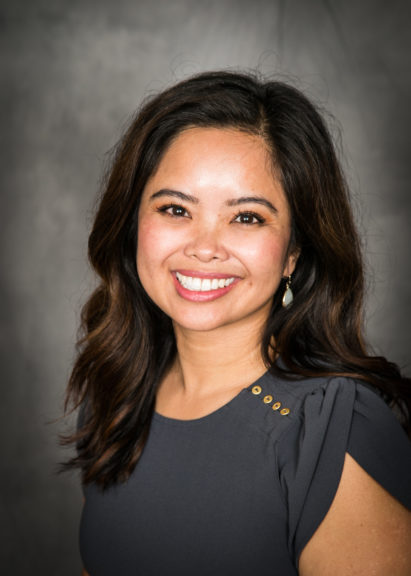Since I was 11 years old, I knew I wanted to be both a pediatrician and a mom. Today, I get to take care of children within the CHOC Primary Care Network at Sea View Pediatrics and be a mom to my 4-year-old daughter. You might think that being a pediatrician has its advantages as you become a parent yourself, but I often find myself worrying more. Just like the parents who come to my practice, I also turn to my pediatrician for an objective perspective to calm my mommy nerves and take care of my daughter.
Here are some of the questions I ask my child’s pediatrician, and what they’ve told me:
What are the best parenting books?
- “Caring for Your Baby and Young Child, 6th Edition, Birth to Age 5” from The American Academy of Pediatrics
- “Baby 411: Clear Answers & Smart Advice for Your Baby’s First Year, 8th Edition” by Dr. Ari Brown and Denise Fields
- “Happiest Baby on the Block” DVD by Harvey Karp
- “1-2-3 Magic: 3-Step Discipline for Calm, Effective, and Happy Parenting” by Thomas Phelan, PhD
How can I maximize my baby/toddler/preschooler’s development?
- Toys must be age appropriate. Toys that are too small have the potential to be a choking hazard
- All ages: sing, talk, dance, read
- Newborn: colored toys with soothing music like baby gym, rattles
- 6 months – 1 year: picture or texture books, musical toys, pots and pans, squeeze toys, peg toys, push/pull toys
- 1-2 years: stacking toys, push/pull toys, household cleaning toys, musical instrument toys, telephone toys (no cords), toy cars
- 2 -5 years: encourage them to begin using their imagination during this age. Puzzles, age -appropriate Legos, blocks, tricycles or scooters with a helmet, kitchen toys, balls, doctor’s kit
- 5-9 years: encourage your child to develop new skills during this time. This can include biking with a helmet, playing sports or other games with balls, using blunt scissors or sewing kit under supervision, playing board games and puzzles.
What are some tricks to keep my picky eater eating healthy?
- Use a plate with dividers: half the plate should be for fruits and vegetables, a quarter for protein, and a quarter for grains.
- Give something you know your child will love as well as something new to try he may not like.
- Eat the same thing your child eats at the table. This shows your child you enjoy your food.
- Hide vegetables in soup or mix in dishes such as stir fry.
- Consistency and positive experience is key.
How do you sleep train? What’s the deal with sleep regression?
- Remember babies need to sleep on their back in their own crib.
- Recommended book: Solve your child’s sleep problems by Dr. Richard Ferber
- You can start sleep training when your baby is 4-6 months old but discuss a specific plan with your child’s pediatrician.
- Place baby in crib still awake to train her how to self soothe. This is the same for toddlers as well. There will be crying, and that is ok.
- some days will be better than others. this is a problem that all parents face.
- For ages 1 and up, try a baby night light that changes color for bed time and when it’s time to wake up
Should I be concerned about my child’s fever?
- Even if your child’s temperature is above the standard 98.6 degrees, we define fever as having a temperature of 100.4 degrees or greater. If your child has a fever for at least three to five days, it’s time to see the pediatrician. This rule doesn’t apply to babies less than one month old; any fevers for them are considered urgent and should be seen in the Emergency Department.
- Try to give as many details to your pediatrician about your child’s illness and behavior as you can.
My child has a rash. Do they need to see the pediatrician?
Rashes should be examined by a pediatrician. During your appointment, tell your pediatrician about any other symptoms your child is experiencing along with their rash, how it started and how it is progressing. Photos can be helpful, but many times photos will not be enough for diagnosis alone. Your pediatrician needs to see and touch the rash and examine the child thoroughly.
Even though I’m a doctor, I trust my daughter’s pediatrician for an objective opinion. Don’t forget to schedule your well-child checks as this is the perfect time to ask questions on development, diet, and overall well-being of your child.
By Dr. Sarah Kay Herrera, a CHOC pediatrician

For more health and wellness resources from the pediatric experts at CHOC, sign up for the Kids Health newsletter.
Find a CHOC Primary Care Pediatrician
From babies to teens, pediatricians from CHOC’s Primary Care Network partner with parents to offer immunizations, sick visits, sports physicals and more.





